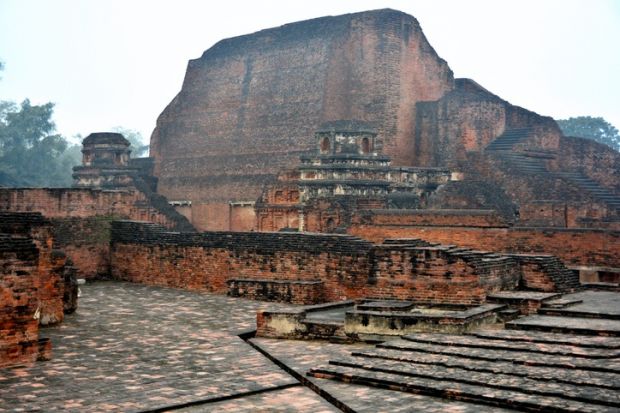In late April, a journalist with one of India’s leading newspapers took to Twitter to revive old, debunked allegations of financial misconduct and nepotism regarding Amartya Sen’s period as chancellor of Nalanda University. The allegations against the Nobel laureate, who is admired and respected across India, met with widespread condemnation and a few days later, the journalist deleted her tweets and apologised.
Sen was associated from the start with the project to establish a new Nalanda University near to the site of its famous ancient namesake. He served as its chancellor from 2010 until the BJP-led government pushed him out a year after it came to power in 2014. This was not at all surprising: Sen is a trenchant critic of Prime Minister Narendra Modi, both of the kind of politics he practises and his economic policies.
But as well as highlighting the ongoing hostility of India’s right wing towards Sen, the latest incident is also a reminder of the folly of trying to recreate Nalanda’s ancient glories.
The original Nalanda, which is sometimes regarded as the world’s first university, flourished from the 5th to the 12th century. It was remarkably international for its time and attracted students – mostly Buddhist monks – from China, Japan, Korea, Mongolia, Thailand, Turkey and elsewhere to study a wide range of disciplines such as religion, history, law, mathematics, medicine, architecture and astronomy. At one time, it had more than 10,000 students.
The ruins of Nalanda Mahavihara – officially a World Heritage Site since 2016 – in the north-eastern city of Rajgir attract sizeable numbers of tourists, helped by their proximity to Bodh Gaya, another World Heritage Site and a major attraction for Buddhists since the Buddha attained enlightenment there.
The project to establish a modern successor began with much fanfare and the backing of several countries, including China, Singapore and Australia. The Nalanda Mentors Group (NMG), consisting of representatives from several of these countries, was set up in 2007.
Establishing a half-decent university anywhere in India poses enormous challenges and unexpected obstacles. Rajgir is in one of India’s least developed states, Bihar, and suffers from poor connectivity. This makes it particularly ill-suited to host a university that aspires to global renown.
However, romantic notions prevailed and the Indian government approved the project in 2010. The university started to admit students from 2014 and has four schools today, with a total of 24 faculty members.
One of the biggest concerns is faculty recruitment and retention. The stature of Sen and other members of the NMG – such as former London School of Economics economist Meghnad Desai and Harvard University historian Sugata Bose – perhaps explains why a handful of accomplished and promising academics initially consented to move to rural Bihar. However, it is remarkable that NMG members did not ask themselves some obvious questions about how easy it would be to convince others – Indians or foreigners – to follow them. What about their healthcare needs? What about schools for their children? Would recruits get by with whatever was available in Rajgir? But for how long? Even if they came, would they stay?
These challenges became all the more pronounced after the BJP came to power. George Yeo, a former Singaporean foreign minister, was appointed to succeed Sen, but resigned in 2016 after the government dissolved the NMG, created a new governing board and appeared determined to discipline and control Nalanda.
A new vice-chancellor, Sunaina Singh, known to be ideologically aligned to the BJP, was appointed in early 2017. Since then, many of the faculty members drawn by Nalanda’s early promise have departed. The university is left with only two visiting or regular foreign faculty members.
The loss of established faculty has made Nalanda less attractive for potential students. There have also been reports of the university administration imposing gender segregation in hostels and barring student protests. Organised weekend trips to the state capital of Patna have also been stopped.
In a 2011 interview, Sen said: “Ever since I saw Nalanda for the first time as a child, I was completely bowled over…I dreamt of bringing the great institution back to life, some day.”
That dream is unlikely to be realised any time soon.
Pushkar is director of The International Centre Goa (ICG).
POSTSCRIPT:
Print headline: Don’t be fooled by romance
Register to continue
Why register?
- Registration is free and only takes a moment
- Once registered, you can read 3 articles a month
- Sign up for our newsletter
Subscribe
Or subscribe for unlimited access to:
- Unlimited access to news, views, insights & reviews
- Digital editions
- Digital access to THE’s university and college rankings analysis
Already registered or a current subscriber? Login







